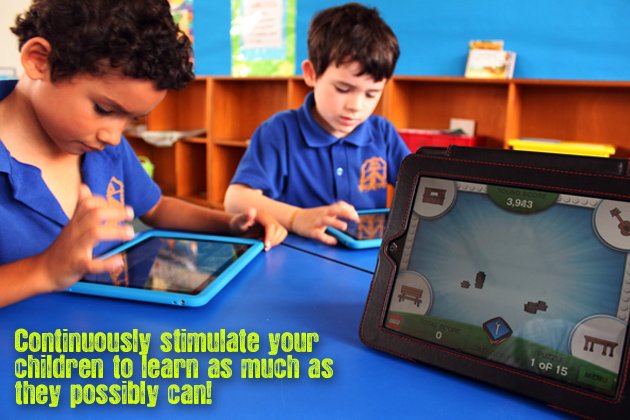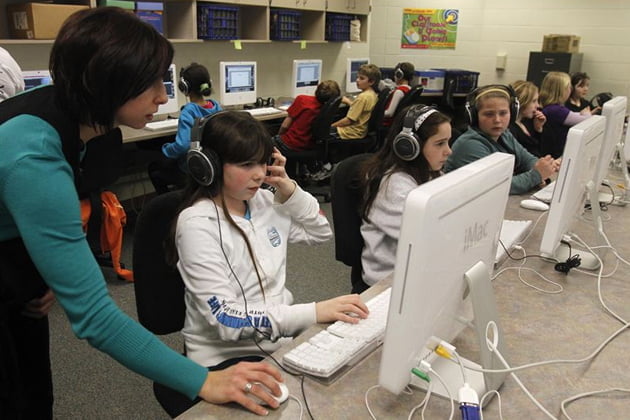By Gustavo A. Ramirez, Guidance Counselor / Education Consultant
Recently, a reader and grandmother of two high school students asked me if I thought that our responsibilities to teach our children today have changed. She pointed out the many drastic changes in the lifestyles and attitudes of young people today compared to when we were teenagers in the 1960’s. She suggested that perhaps we need to redefine the meaning and purpose of Education in the 21st Century. My response is that I firmly believe that no matter what age we live in, our responsibilities to teach young people, especially our own children, will never change. A large part of our responsibility as parents is to guide our children as they grow, and continuously stimulate them to learn as much as they possibly can in order to become self-sufficient, productive and independent. After all, the ultimate goal for all children is to grow up and eventually “leave the nest” (home) to lead their own lives, become independent, create their own families, and so on and so forth. However, no matter how much young people may change from one generation to the next, my unequivocal response regarding redefining Education is: NO.
Change is never really a surprise, no matter how massive it may be. We can neither cover up nor ignore change, no matter how very much some of us prefer to keep doing things “the old way”. Change is change: we are born; we grow up; we die. Nothing is permanent in this life. So, it’s not the meaning or purpose of Education that we need to redefine to fit this new century; rather, what we must make every effort to change/adjust is the content, or “what” we need to teach young people so that they can learn to become self-sufficient and productive. Moreover, in order to constantly adjust to newer times, we also need to change, partially or completely if necessary, the “how” we go about educating or teaching our children. By all means, the many variables of Education (who, what, where, when, how) will always change from generation to generation; about that there is no doubt. As an example, look at the many children and teenagers today, in Belize and throughout the world, who everyday easily and casually use so many mobile technological gadgets that fit in one hand; yet, so many of us who are parents and grandparents have NO idea whatsoever of the many uses of those gadgets! How many of us who are past retirement age regularly and adeptly use today’s handheld/mobile devices and touch screen technologies? (Only five years ago my teenage sons had to show me how to send text messages via cell phone; they have been texting almost since they were able to read.) Nevertheless, despite the fact that the many variables of Education constantly change, what will forever remain constant, no matter which generation is at the receiving or giving end, is “why” we are educated. No one is born self-sufficient; each one of us, though, can learn how to become self-sufficient and productive through a process called: Education.

The “why” for Education never changes; but there are many different ways to offer as well as receive an education. Schools are fully structured and exist to educate many students everyday in structured settings, i.e. teachers in specific classrooms, with Principals and Heads of Departments to guide them. On the other hand, how do the young people and juvenile delinquents who do not attend school obtain their education? They receive their education, not from schools or in structured settings, but rather by observing, associating, and imitating others in their (home) environment. Their education is not at all structured, but more akin to “survival of the fittest”. Yet, do they learn how to become self-sufficient and productive? They certainly do! Unfortunately, whatever productivity and survival they learn is criminal and totally harmful to others and to their very selves. How sad it must be to have to live most of one’s life trying to escape/avoid the arm of the law.
What is at stake when a country’s Education system does not adequately serve and prepare its youth to survive? The visible and immediate future becomes that of an under-developed country that lags further and further behind everyone else in the developing world. Today, more than ever, schools in Belize are at a huge risk and are failing our students because as a country we are falling further and further behind in this rapidly advancing age of technology. Failure is also defined as having hundreds, even thousands, of highly educated young professionals who have no employment opportunities — nowhere to work. Why should we pay so much for a Secondary or Tertiary Education when after graduation we are not given the chance to put that education to use? Why risk losing the cream of our crop and all the brilliant young minds of our youth who will not think twice about moving to more developed or “developing” countries instead of staying at home unchallenged and unemployed? Are we encouraging entrepreneurship in our youth? So, my continuous and unabashed polemic cry to our government and to churches that tout Education as a key component of their evangelism is for them to embrace and instill positive change in our Education systems (how we teach school) in Belize, effective immediately. Those of you who set up and run our Education systems in Belize need to take your blinders off! Do you realize how very far behind, or lagging, you are in overhauling the “how” and “what” our young people need to be learning today?

Our government and churches today seem totally oblivious to any sort of Education reform whatsoever, especially at the Primary and Secondary school levels, and seem quite content to keep running schools today the same way they have done for generations before. (Our own diplomas still mean absolutely nothing without foreign CXC, previously GCE, passes after high school. Don’t even think of getting any higher education without those passes!) The refusal to revitalize and modernize our schools puts our entire nation at a total risk of failure within the next twenty-five years. Our schools today need to step up to the plate and offer students, young people who are our country’s immediate future, ways and means to become adept at new and global technology. Gone are the days of spending hours upon hours teaching the three R’s by rote to young students in Primary School. Example: Today at the high school level and above, no teacher wants handwritten assignments/projects; rather, all work must be printed (on a computer not a typewriter). Let’s start, therefore, to teach students, from the very onset of Primary all the way through Secondary school, how to stay abreast of the increasing role of technology and globalization in our lives. Since I graduated from high school in 1969 so much change has come our way in Belize, and so much more will continue to keep coming at even faster rates! Are our young people being prepared to face even more changes? My generation may not need to worry so much about learning how to be self-sufficient or productive and proficient in this new age and century — most of us are retired now. But, what about our children and their children’s generations to follow…
Upcoming articles will explore how high-tech can come to the rescue of our unique Belizean cultures. (My father and his parents, who lived in Northern Corozal District, were polylingual and spoke fluent Maya in addition to English and Spanish. Sadly, today I know but a phrase or two in Maya.) How many young people in Belize today can fluently speak Maya, Quiche, and Garifuna? What are we doing right now to preserve and pass on our rich native languages and cultural traditions to future generations?
Author’s Note:
These articles on Education are not intended to be comprehensive or complete. They are written and contributed in an effort to provide a “starting point” for valuable discussion amongst educators, students, and the community. When we discuss and review students’ learning capabilities and the ways in which we currently try to educate them, we learn from our mistakes as well as success. Here’s to finding the best path to follow, fellow educators!











